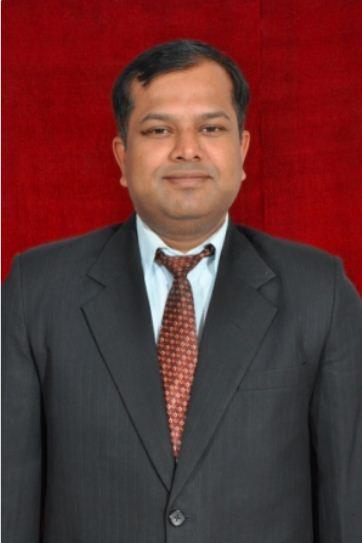B. Tech. - Computer Science Engineering (Lateral)
Durgapur
.
3 years
UG
MAKAUT
10+2 passed in Science stream. Qualifying entry requirement: WBJEE and JEE (main). Admission to the second year of B. Tech programme (Lateral Entry) is based on qualifying JELET.
To complete admission online, follow the steps below:
The IT sector in India is booming right now, creating exponential growth for B. Tech. Computer Science Engineering (Lateral) graduates. This presents them with a vast array of exciting opportunities in the Indian job market. Some of the roles offered after the completion of CSE are

Google Inc

TCS

Maedian Projects

SEC & ARAMCO
Course Details of B. Tech. in Computer Science Engineering (Lateral) as follows –
Kolkata, known for its rich history, culture, and educational opportunities, is an ideal destination for pursuing a B.Sc. in Psychology course in K...
Read MoreThe landscape of journalism has undergone a seismic shift in recent years. Traditional media, like newspapers, television, and radio, once the pill...
Read MoreWith digital cinema taking over, the film industry has moved from using film to using digital technology for every step, from filming to editing an...
Read MoreMeet our faculty members

Associate Professor Department of Computer Science Engineering
Durgapur
B Tech CSE, CSE(AI) and CSE(Data Science)
Operating System, Python, R Programming, AI, Big Data, DBMS, SQL, Linux
Network Security, Image Processing, IoT, AI & ML
PhD, NIT Durgapur,
M Tech in Computer Technology, Jadavpur University
B. Tech in Computer Science & Engineering from Govt. College of Engineering & Ceramic Technolog
CHINSURAH INSTITUTE OF MANAGEMENT & TECHNOLOGY
15+ Years

Department of Computer Science Engineering
Durgapur
Machine Learning, E-Commerce, Software Engineering, Deep Learning
Research in Deep Learning
M.Tech, Computer Science core subjects papers, MAKAUT
B.Tech, Computer Sc
Millia Institute of Technology,
14 Years

Department of Computer Science Engineering
Durgapur
Cyber Security, Operating System, Database Management System, Distributed Systems
Cyber Security, Cloud Computing
M.Tech, Computer Science and Engineering, MAKAUT,
B.Tech, Computer Science and Engineering, SMU
Inspiria Knowledge Campus
10 Years

Department of Computer Science Engineering
Durgapur
C, Java, Python, DBMS, OS, SE
Web Development
B. Sc., Science Graduate, The University of Burdwan,
Asansol Engineering College
12.11 Years

Assistant Professor Department of Computer Science Engineering
Durgapur
CSE,HMT,BCA
Cyber Security, Internet Technology, Numerical Techniques, IT Skills
WSN,IoT
Ph.D, WSN and IoT, LPU Punjab,
M.TECH, CSE, KIIT Bhubaneshwar,
B.TECH, IT, MU ,73,
SRMS Bareilly
15.5 Years

Department of Computer Science Engineering
Durgapur
Competitive coding, C, Java, Python, Data Structures, Algorithms
Cyber Security
Pursuing in Cyber Security
M.Tech in CSE from WBUT
B.Tech in CSE from Kalyani Govt. Engineering college
Sanaka Educational Trust's Group of Institutions
18+ Years

Department of Computer Science Engineering
Durgapur
COMPUTER ORGANISATION, COMPUTER ORGANISATION AND ARCHITECTURE, COMPUTER FUNDAMENTALS (IT & LT)
ARTIFICIAL INTELLIGENCE, MACHINE LEARNING, PYTHON
M.TECH, CSE, B.C.ROY ENGINEERING COLLEGE
B.TECH, IT, DIATM
DURGAPUR PUBLIC SCHOOL
3.5 Years

Department of Computer Science Engineering
Durgapur
Machine Learning, Data Mining, Software Engineering
Machine Learning, Image Processing
M.E., Computer Science & Engineering, The University of Burdwan,
B.Tech, Computer Science & Engineering
Bannari Amman University of Technology
3 Years

Assistant Professor Department of Computer Science Engineering
Durgapur
B.TECH(CSE,AIML,DS),BBA(HOSPITAL MANAGEMENT)
CLOUD COMPUTING,APTITUDE,COMPUTER APPLICATION(BBA)
NETWORKING
M.TECH,COMPUTER SCIENCE,LPU
B.TECH,COMPUTER SCIENCE,WBUT,
BENGAL COLLEGE OF ENGINEERING & TECHNOLOGY,
7.6 Years

Senior Technical Assistant Department of Computer Science Engineering
Durgapur
B. Tech, B.B.A, H.M
Operation System, Computer Networking, Programing in C, Numerical Methods, Computer Application
COMPUTER NETWORKING
MCA, Computer Application, Sam Higginbottom University of Agriculture, Technology and Sciences
Bachelor of Commerce, Commerce, Burdwan University
Rajendranath College of Polytechnic
15 Years

Department of Computer Science Engineering
Durgapur
PYTHON, C, DATA STRUCTURE WITH C, JAVA
Cyber Security, JAVA
M.TECH (CSE), MAKAUT
BCA, MAKAUT
ABS Academy of Science,
10.1 Years

Assistant Professor Department of Computer Science Engineering
Durgapur
B.Tech
Compiler Design (Theory),Operating System(Theory & Practical)
Artificial Intelligence & Network Security
Masters Of Technology/CSE/RTU,Kota
Bachelor of Engineering/University of Rajasthan
Mangalore Institute of technology & Engineering
14+ Years

Department of Computer Science Engineering
Durgapur
COMPILER DESIGN, DATA STRUCTURES & ALGORITHMS, ARTIFICIAL INTELLIGENCE
MACHINE LEARNING, BIG DATA
PURSUING PHD., C.S.E., UEM
M. TECH., COMPUTER SCIENCE & ENGINEERING, MAKAUT
B. TECH., COMPUTER SCIENCE & ENGINEERING, MAKAUT,
SRMS
5.8 Years

Technical Assistant Department of Computer Science Engineering
Durgapur
B.Tech in CSE, AIML, DS
Design & Analysis of Algorithm, Formal Language & Automata Theory, Soft Computing, Computer Graphics, Data Structure & Algorithm
Theoretical Computer Science
M.Tech in CSE from WBUT
B.Tech in CSE from WBUT
IMPS College of Engineering & Technology, Malda
13 Years

Department of Computer Science Engineering
Durgapur
OOPS,DATA VISUALIZATION
PhD
MTech, CST, WBUT,
BSc. , Math Hons, Burdwan University,
Asansol Engineering College
15 Years

Department of Computer Science Engineering
Durgapur
Software Engineering, Data Structure and Algorithms
Machine Learning
M. Tech. , Information Technology, National Institute of Technology, Durgapur
B. E. , Computer Science and Engineering, The University of Burdwan,
Swami Vivekananda Institute of Science and Technology
12.6 Years

Department of Computer Science Engineering
Durgapur
Artificial Intelligence, Machine Learning, Neural Network
M. Tech in Computer Science and Engineering, Techno India University
B. Tech in Computer Science and Engineering, Techno India University
Eggheads Education pvt ltd (Cambridge Curriculum)
2 Years